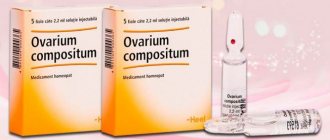From the moment a pregnant woman is registered, she will have to undergo regular tests. Monitoring of laboratory parameters of urine and blood is carried out for diagnostic purposes. This is the simplest and most effective way to monitor the condition of the expectant mother and child.
Among many biochemical indicators, the gynecologist will certainly monitor the level of hemoglobin in the blood during pregnancy. And if it drops at the slightest level below normal or very close to this limit, and even more so if anemia develops during pregnancy, he will certainly prescribe an iron supplement to his ward. It could be Fenules.
Contraindications
used in the prevention and treatment of iron deficiency anemia of various origins, including prolonged menstrual bleeding, pregnancy, including during the period of planning, lactation, intense physical and intellectual stress, hidden iron deficiency, preparation for planned operations, and during periods of intensive growth.
Contraindications to the use of the drug
are: increased individual sensitivity, hemochromatosis, hemosiderosis.
Among patients, there are groups of people to whom Fenyuls cannot be prescribed. Contraindications to taking the drug are:
- hypersensitivity to components;
- hemochromatosis, hemosiderosis;
- lead, hemolytic, sideroblastic anemia;
- thalassemia, brain disorders;
- previous gastric surgery;
- exacerbation of peptic ulcer;
- acute bleeding of the digestive tract;
- age under 12 years (for capsules and tablets);
- narrowing of the esophagus.
Contraindications and side effects: are there any “dark sides” to Fenyuls?
The instructions for use of the drug contain a warning that its use is prohibited in case of individual intolerance to any of the constituent components, the presence of acute infectious pathologies of the genital organs, diseases of the gastrointestinal tract, or in the case of a diagnosis of impaired iron absorption.
If you ignore these recommendations, unpleasant side effects may occur, such as:
- allergic reactions;
- nausea and vomiting;
- weakness in the body and dizziness.
special instructions
When studying the special instructions section of the instructions, you can obtain rules for using Fenyuls. Some excerpts from the paragraph:
- The drugs are taken during or immediately after meals; when taken on an empty stomach, there is a high risk of irritation of the gastric mucosa.
- If a dose is missed, you should take the medicine as soon as possible; do not double the dose the next time you take it.
- During treatment, it is necessary to monitor the concentration of blood elements and hemoglobin, the overall coagulation ability of the serum.
Indications for use
If you refer to the instructions, you can learn from it about the main conditions and diseases for which the Fenyuls complex is recommended for use:
- increased need for iron - donors, vegetarians, elderly people;
- anemia caused by poor diet;
- anemia due to chronic blood loss;
- lack of B vitamins;
- iron deficiency anemia in infants and preschool children;
- hidden iron deficiency caused by frequent or prolonged menstruation, pregnancy, lactation.
Interaction with other drugs
Antacids containing aluminum and magnesium hydroxide (Maalox, Almagel), as well as calcium preparations, reduce the absorption of ferrous iron from the gastrointestinal tract.
https://www.youtube.com/watch?v=DIaOpKYYNU8
The drug should not be combined with other iron-containing products, as this can lead to an overdose. Other points of drug interactions:
- After taking antacids (Almagel, Omeprazole), sorbents (Activated carbon), at least an hour or two should pass, since they interfere with the absorption of elements.
- Capsules should not be combined with other multivitamin complexes to avoid hypervitaminosis.
- Iron reduces the absorption of tetracyclines, reduces the effect of Levodopa, Methyldopa, Penicillamine, fluoroquinolones, and thyroid hormones.
- It is prohibited to combine the drug with Doxycycline, Ofloxacin.
Pharmacodynamics
The active therapeutic effect of Fenyuls on the body is due to its balanced composition. It is not surprising that patients with micronutrient deficiency are prescribed Fenyuls containing iron, zinc, and folic acid. The benefits of this product are due to the following components:
- iron is necessary for the full functioning of hemoglobin;
- vitamins C, B increase the absorption of the main component;
- thiamine is an assistant to carbohydrate metabolism;
- nicotinamide is responsible for cell respiration;
- riboflavin has a beneficial effect on visual functions;
- zinc strengthens the body, slows down aging and eliminates acne.
In most people taking the drug, after a month, hemoglobin rises, vitamin deficiency is cured and the manifestation of many degenerative disorders in the body decreases.
Overdose
Currently, cases of drug overdose
no information received.
Six hours after an overdose of Fenyuls, nausea, vomiting, bloody diarrhea, and abdominal pain begin. The person turns pale, cold, sticky sweat appears, a weak pulse is felt, and convulsions may develop. Blood clotting processes are disrupted. After 12 hours, an imaginary improvement occurs, but after 12-48 hours the body temperature rises, collapse (fainting) may occur, and liver or kidney failure may develop. Late symptoms appear after several weeks - strictures form in the intestines.
If any signs of overdose appear, gastric lavage is necessary, and vomiting should be induced at home. In case of severe poisoning with a risk of death, deferoxamine is prescribed. In other cases, symptomatic treatment is carried out: infusion therapy, administration of drugs that restore blood clotting and correct acidosis.
Features of use during pregnancy
Prevention of iron deficiency is recommended from the 14th week of pregnancy. To do this, you should take 1 tablet of Fenuls per day during meals with water, preferably in the first half of the day. If the drug causes side effects from the gastrointestinal tract, it is recommended to take it after meals. The course lasts 2 weeks, then a week break is required.
The dosage of the drug is determined by the doctor, guided by the blood test data. In severe cases, 2 tablets per day are allowed, and the duration of treatment is set until blood counts improve. If for any reason a dose is missed, then next time you should not take a double dose, since the excess iron will still not be absorbed.
When planning a pregnancy, you can prevent anemia by taking 1 tablet of Fenuls daily.
The product can only be used from the 14th week of pregnancy. At your own discretion, a pregnant woman should not use Fenuls. In the 1st trimester, iron supplements are extremely rarely prescribed to pregnant women, since taking them can provoke developmental disorders of the fetus.
While taking Fenuls, it is recommended to reduce the consumption of coffee, tea, eggs, cereals, and milk, since these products impair the absorption of iron.
Sometimes the need for iron supplements continues after childbirth. During this period, iron levels in the blood continue to fall. This process is associated with blood loss during childbirth. Against the background of anemia, the body's recovery proceeds much more slowly. In such cases, it is recommended to take Fenyuls for some time after the birth of the child on the recommendation of the attending doctor.
Since each person’s body is individual, a pregnant woman, when taking Fenuls, needs to listen to her well-being. The response to the same drug may differ among patients. If you experience dizziness, nausea, vomiting, abdominal pain, diarrhea or constipation, you should notify your doctor.
Iron deficiency during pregnancy is a common and dangerous phenomenon that threatens the health of the woman and the fetus. Therefore, it is important to promptly prevent and treat anemia. Fenyuls is a modern drug that can cope with such tasks. Due to the fact that the drug has side effects in rare cases, it is prescribed to pregnant and postpartum women.
It should be remembered that the drug is prohibited for use in the 1st trimester of pregnancy. In addition, like any medicine, Fenyuls requires a correctly selected dosage and can cause negative reactions in the body. Therefore, it is not recommended to prescribe the drug yourself; it can only be used after consultation with a doctor.
Author: Olga Rogozhkina, doctor, especially for Mama66.ru
Information about the medicine
Of particular value to the drug is the presence of divalent iron in its composition. It is part of hemoglobin, thereby ensuring tissue respiration, stimulating metabolic processes in cells, playing a very important role in the life of the body. Other substances contained in the drug (vitamins B and C) help the absorption of iron and neutralize the negative effects on the gastrointestinal tract.
Fenyuls is produced in the form of capsules that slowly dissolve in the gastrointestinal tract, which reduces the likelihood of irritation of the stomach lining. Iron in the blood reaches its maximum concentration after 1-2 hours.
Capsules 10 pcs. in blister packs, 1, 3, 9 or 10 blister packs in a cardboard box.
Description and release form
In pharmacies, Fenuls is offered in three pharmacological forms: capsules, tablets and drops.
The capsules are green in color with orange, red or white contents. One capsule contains 150 mg of iron sulfate. Among the active ingredients it contains ascorbic acid, riboflavin, pantothenic acid, nicotinamide, carmoisin supra. Available in packs of 10 or 30 capsules.
The tablets have a biconvex round shape, coated with a thin red-brown film . In one tablet the concentration of iron sulfate is 100 mg. Contains vitamin C and ethylcellulose. Available in packs of 10, 30 and 60 pieces.
The drops are a transparent dark brown liquid. The concentration of iron sulfate is 50 mg per 1 ml of solution. Contains the substance polymaltose as the main active component. Available as 150 ml syrup and 30 ml drops.
Analogs
In some cases, if the drug is poorly tolerated or unavailable, Fenyuls analogues are prescribed. Popular substitutes:
- Sorbifer - direct analogue, tablets with iron sulfate;
- Feron-Forte – capsules with iron carbonyl;
- Feroplect – capsules containing iron sulfate heptahydrate;
- Aktiferin - drops, syrup and capsules with iron heptahydrate sulfate;
- Hemoferon is a solution based on iron citrate;
- Ranferon – capsules based on ferrous fumarate.
Fenyuls is an antianemic drug containing iron and a multivitamin complex.
Fenyuls is a medication that contains iron and a complex of vitamins. The action of the drug is aimed at demonstrating antianemic properties. The medicine is used for iron deficiency and hypovitaminosis. Safety of use in children has not been proven. The medication is used during pregnancy and lactation.
Is Fenyuls necessary during pregnancy?
If there are problems associated with a lack of iron in a pregnant woman’s body, it is necessary to take special medications to help cope with this.
Iron deficiency during pregnancy can lead to:
- threat of miscarriage;
- fetal hypoxia;
- gestosis.
Anemia is fraught with complications during childbirth, such as:
- premature birth;
- weakness of labor;
- bleeding during childbirth;
- increased risk of infection and poor tissue regeneration.
Lack of iron in the body manifests itself:
- weakness;
- tinnitus;
- dizziness;
- rapid fatigue;
- dry skin and mucous membranes;
- fragility and hair loss;
- decreased body resistance.
Anemia can lead to disorders not only in the mother, but also in the fetus. Moreover, the negative impact of this condition on the fetus will be much stronger than the impact on the woman’s body. Iron deficiency in the mother causes pathologies in the child such as intracranial injuries, malnutrition, developmental defects, low immunity, and intrauterine infection.
In accordance with WHO recommendations, a woman in the second half of pregnancy and the first six months after the birth of a baby and breastfeeding should receive an iron supplement. If we take into account the problems that iron deficiency creates for the development of the baby and the health of the woman, then the question of the benefits of Fenyuls is beyond doubt.
According to the information contained in the instructions for Fenuls, during pregnancy the drug is preferable to its analogues, since in addition to ferrous sulfate it contains vitamins. Affordability also speaks in its favor.
It should be noted that, like its counterparts, the drug can cause side effects. As patient reviews show, Fenyuls during pregnancy has negative side effects much less often than similar drugs.
Speaking about the need for Fenyuls during pregnancy, it is worth noting the importance of preventing anemia, which should begin in the first weeks of pregnancy. Preventing iron deficiency includes a balanced diet and daily walks in the fresh air.
Fenyuls: instructions for use, price, reviews, analogues
| Type of medicine | Internet price in rubles | Pharmacy cost in rubles |
| Capsules 10 pcs. | 100 | 134 |
| Capsules 30 pcs. | 192 | 243 |
| Drops 30 ml | 128 | 216 |
| Tablets 10 pcs. | 89 | 116 |
| Tablets 30 pcs. | 154 | 130 |
How to take Fenyuls
The iron preparation Fenyuls is intended for oral administration. All forms are washed down with a small amount of water (half a glass). The daily dosage can be taken once (morning or evening) or divided into 2-3 doses. In case of divided use, the drug should be taken with every meal. During the course, you can change the order of use of the drug.
Drops
Traditionally, Fenyuls drops are considered a children's remedy and are used from the first days of life. Premature newborns are prescribed 1-2 drops per kg of body weight. The daily dose is dissolved in milk or baby food and given once. The dosage is adjusted every 1-2 weeks, the course of treatment lasts 3-5 months. For children under one year of age, it is recommended to take 10-20 drops/day in a course until blood hemoglobin normalizes.
Children 1-2 years old are prescribed 20-40 drops/day until anemia is cured, then take it for another month for prevention. For children over 12 years old, 40-120 drops/day are prescribed. Pregnant women are prescribed 80-120 drops per day. To prevent iron deficiency, drops are taken 2-6 drops/day in courses of 1-2 months. Between Fenyuls courses there is a break of 1-2 months.
Capsules
For hidden iron deficiency, a capsule is prescribed once a day for a monthly course. To prevent the loss of microelements during heavy menstruation - one capsule 1-2 days before, during and 1-2 days after the end of menstruation. During pregnancy and breastfeeding, the prophylactic dose is 1 capsule once a day for the entire period of gestation and until the end of breastfeeding. Anemia in pregnant women is treated by taking a capsule once a day during the second trimester and a capsule twice a day in the third.
Pills
When ferritin levels are low, adolescents over 12 years of age, adults and pregnant women are prescribed one tablet once a day to prevent anemia. For the treatment of diagnosed anemia, one tablet is prescribed 1-3 times a day, the course of administration is 3-5 months. If necessary, the dose is increased to four tablets/day in two divided doses. The tablets should not be chewed or crushed; they should be swallowed whole with water.










